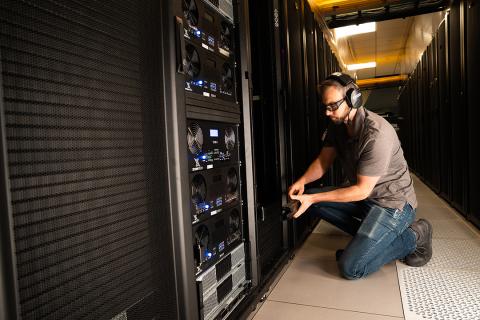
Software
Engineering
Software
Engineering
Better software, faster
Better software, faster
Andrea Starr | Pacific Northwest National Laboratory
Successful systems require mature technologies and efficient software solutions. Drawing on our multidisciplinary technical expertise and project management experience, our structured systems engineering approach defines and interprets complex lifecycle requirements to provide quality end-to-end solutions.
PNNL software engineering teams deliver well-architected software-centric systems. Through sound engineering principles, we apply wide-ranging expertise—software architecture, technology assessment, requirements analysis, software quality, user experience, software testing, and documentation—to create and deploy sustainable products that address environmental, energy, and national security challenges.
Our software engineers combine domain subject matter expertise with rigorous laboratory-level software development standards to produce high-quality software. We maintain this ability by fostering a community of best practices and equipping our teams with the necessary tools, resources, and skills to deliver better software faster.

PNNL is leading the next generation of computing for scientific discovery.
Explore our Computing & AI story
Preventing defects in software enhances overall product quality and reduces project costs. Software developed at PNNL must not only meet the needs of the sponsor but also perform well in the sponsor’s environment and be of a quality that encourages future business. By accurately tracking product progress and conducting solid software testing, PNNL software teams deliver on time and within budget.
Our deployed systems span the globe and the technical realm, from international nuclear materials safeguards and security to complex radiation detection systems. We also lead in developing integrated building energy technologies, advancing national power grid reliability and smart grid technology, integrating and managing heterogeneous scientific data, and conducting large-scale technology demonstrations.
Learn more about our software engineering capabilities
- Common Viewer Air - Pilot project using Amazon Web Services to transport computed tomography passenger baggage data from originating international airports for targeted flights destined for the United States.
- Cache - Cloud-based tool that allows the U.S. Department of the Treasury's disparate data to be easily searched, translated, extracted, linked, and analyzed.
- GeoBOSS - Software library that combines the data-handling capabilities of Spark and the user-friendliness of Python to simplify geospatial analytics and the transition between small-scale research and large-scale operational projects.




